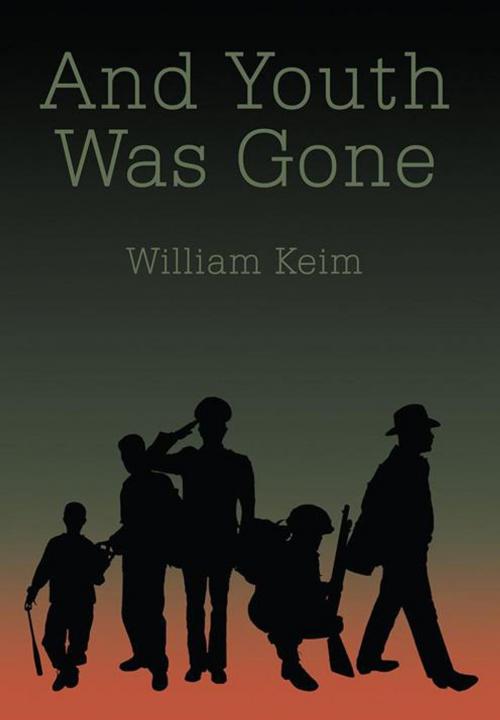| Author: | William P. Keim | ISBN: | 9780759630703 |
| Publisher: | AuthorHouse | Publication: | June 22, 2001 |
| Imprint: | AuthorHouse | Language: | English |
| Author: | William P. Keim |
| ISBN: | 9780759630703 |
| Publisher: | AuthorHouse |
| Publication: | June 22, 2001 |
| Imprint: | AuthorHouse |
| Language: | English |
The Second World War profoundly changed the people who fought in it. Bill Kress, a small-town Depression child, raised by his grandparents, became a part of that great drama just a few months after his graduation from high school. He enlisted mainly to delay his induction, but ironically, his enlistment actually brought him under the army's jurisdiction sooner than had he been drafted. Through his basic training and technical schooling to become an army medic, he was to learn that the army governed its people impersonally without regard for their desires, or even their imagined skills. There was "a right way and an army way."
Forced to leave his "first love," a beautiful girl in Atlanta, he was sent overseas aboard the Queen Elizabeth, a woman's name that was to have a significant place in his life. In a series of flashbacks and dreams aboard the ship, Bill Kress tells us about his childhood and the profound influence his grandmother had upon his young life. It was her gentle kindness and love for him and others that was to triumph over the brutish forces of both his grandfather, a stern Pennsylvania Dutch disciplinarian, and the army. Grandfather taught him to survive; grandmother taught him how to live.
Kress's life both at home and overseas was a mixture of horror and humor. The humor shows in the catastrophe of his first date, his army haircut, the tough medical sergeant's "making his own patients," and the romance between the little Chinese cook and the huge English ATS girl. These incidents furnish comic relief for the horrors of being pinned for hours on the beach D-day, and the deaths of friends there and at Bastogne.
Bill Kress more than just survives the war; he reaches an understanding about the meaning of life through its sufferings and through the love of Elspeth. She, as well as his grandmother, was his Elizabeth Barrett who taught him that love is unselfish and requires a complete subjugation of self for the good of others. Bill Kress's lessons were hard, but their very toughness taught him that life, itself, is a struggle, a search for love.
The Second World War profoundly changed the people who fought in it. Bill Kress, a small-town Depression child, raised by his grandparents, became a part of that great drama just a few months after his graduation from high school. He enlisted mainly to delay his induction, but ironically, his enlistment actually brought him under the army's jurisdiction sooner than had he been drafted. Through his basic training and technical schooling to become an army medic, he was to learn that the army governed its people impersonally without regard for their desires, or even their imagined skills. There was "a right way and an army way."
Forced to leave his "first love," a beautiful girl in Atlanta, he was sent overseas aboard the Queen Elizabeth, a woman's name that was to have a significant place in his life. In a series of flashbacks and dreams aboard the ship, Bill Kress tells us about his childhood and the profound influence his grandmother had upon his young life. It was her gentle kindness and love for him and others that was to triumph over the brutish forces of both his grandfather, a stern Pennsylvania Dutch disciplinarian, and the army. Grandfather taught him to survive; grandmother taught him how to live.
Kress's life both at home and overseas was a mixture of horror and humor. The humor shows in the catastrophe of his first date, his army haircut, the tough medical sergeant's "making his own patients," and the romance between the little Chinese cook and the huge English ATS girl. These incidents furnish comic relief for the horrors of being pinned for hours on the beach D-day, and the deaths of friends there and at Bastogne.
Bill Kress more than just survives the war; he reaches an understanding about the meaning of life through its sufferings and through the love of Elspeth. She, as well as his grandmother, was his Elizabeth Barrett who taught him that love is unselfish and requires a complete subjugation of self for the good of others. Bill Kress's lessons were hard, but their very toughness taught him that life, itself, is a struggle, a search for love.















